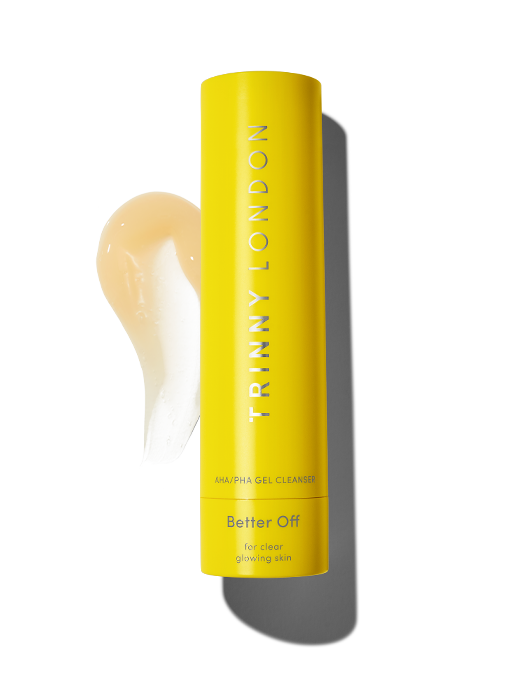
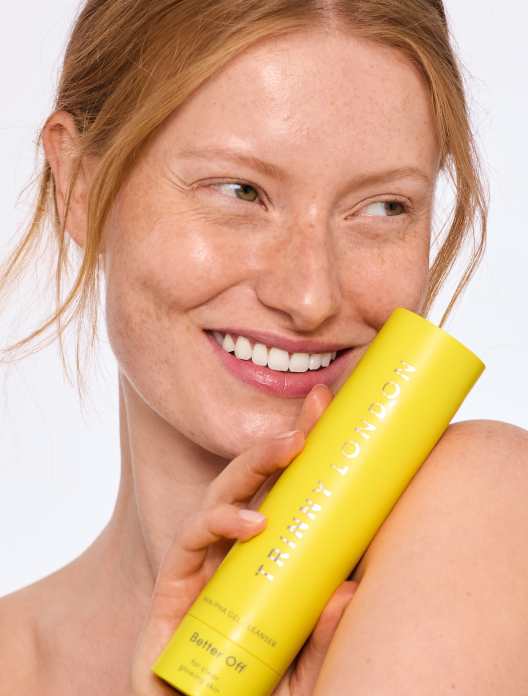
Better Off
Exfoliating gel cleanser for clear, glowing skin, suitable for all skin types
Choose 3 free samples with every order

For some, a “skincare routine” begins and ends with a splash of cold water. For others, it’s a carefully curated 10-step system. Whichever end of the spectrum you reside in, skincare can be a confounding space. To exfoliate or not to exfoliate? Is double cleansing worth the effort? How good is retinal, really?
But at its core, skincare can be incredibly simple – it’s a daily routine of science-backed formulations designed to care for your skin and address any concerns you might have.
So if you’ve ever found yourself feeling a little lost, you’re in the right place. Here’s how to build a beginner-friendly skincare routine – from the best steps to follow (and in which order) to the key ingredients to help your skin look and feel its very best.
Your first step is determining your skin type, and Skin Expert and Pro Facialist Fiona Brackenbury has a speedy way to figure it out. “Cleanse your skin, wait 20 minutes, and then see how your skin feels with no skincare.” If your skin feels taut and tight, then it errs on the dry side. If you feel like there’s oil coming through on your T-Zone, then your skin sits on the oily side. A little of both? That’s combination skin. If your skin feels happy and comfortable – no tightness, no excess oil – then your skin is normal.
Now it’s time to build a routine in-line with your skin type. “There’s always going to be a core routine,” explains Fiona. “You’ll always have cleansing because it’s the stage that everybody needs to do. Equally, we need to exfoliate, moisturise and use SPF. So they’re your real core, real basics.” That’s it. Four products. The absolute essentials for even the most stripped-back skincare routine…
Your first non-negotiable step is cleansing. If your skin isn’t clean, then the rest of your routine won’t work effectively. Think of it like polishing a dusty floor – your tiles simply won’t sparkle if you don’t clean them first, and the same is true for your skin.
You should cleanse your skin twice a day; once in the morning to wash away the impurities that collect overnight, and twice in the evening to wash away makeup, SPF and grime.
If you have oily or combination skin then opt for a gently exfoliating gel cleanser to whisk away oil and dirt without stripping your skin. Balm or oil-based cleansers are brilliant for dry skin, helping to deeply nourish while washing away grime.


Exfoliating gel cleanser for clear, glowing skin, suitable for all skin types
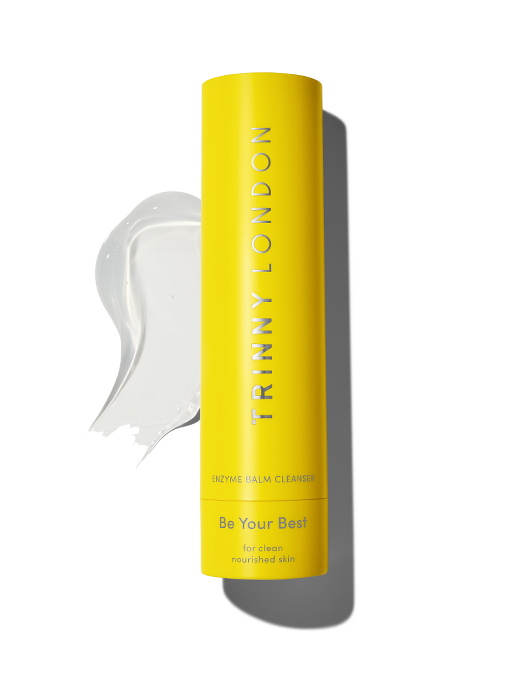
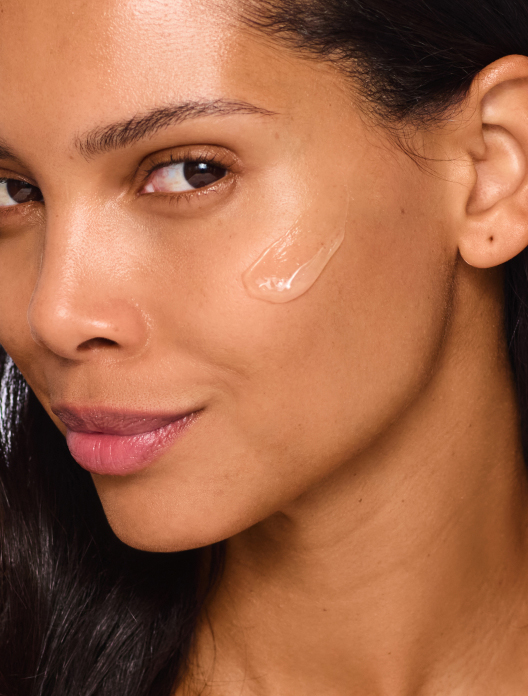
Oil-based transforming cleanser for clean, nourished skin, suitable for all skin types
“Dead skin cells can cause so much havoc for the skin,” says Fiona. So removing them requires some gentle persuasion in the form of a liquid exfoliant. This helps to prevent breakouts, evens skin texture and clears the path for the rest of your skincare to get to work. The result is a brighter, smoother, softer complexion.
Just like the perfect pair of jeans, there’s no one-size-fits-all approach when it comes to liquid exfoliants – it all depends on your skin goals. If this is your first foray into the wonderful world of liquid exfoliation, poly-hydroxy acids (PHA) are best for beginners and those with sensitive skin. They have a large molecule size, which means they don’t penetrate too deeply into the skin, so there’s less risk of irritation.
For the exfoliant aficionados, a powerful alpha-hydroxy (AHA) acid is the way to go – their miniature molecule size means they can dive deeper into the skin to dislodge dulling dead skin cells, target dehydration and smooth fine lines.
Finally, we have beta-hydroxy acids (BHA). Best for skin that’s clogged, congested and blemish prone, they travel deep into the pores to clear out the dead skin and debris responsible for breakouts.
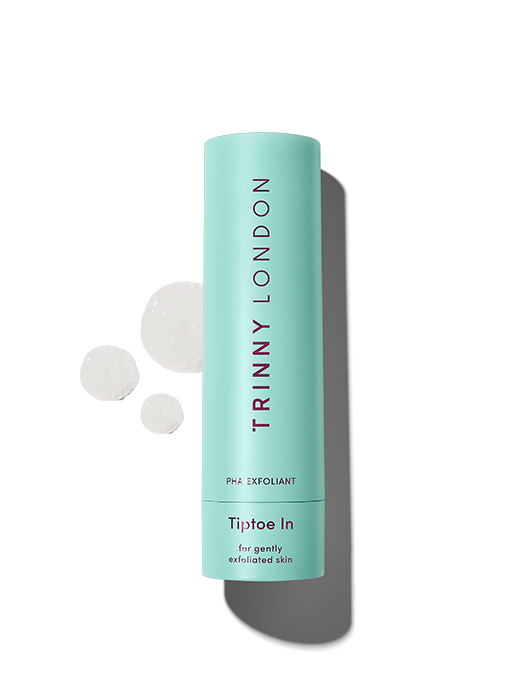
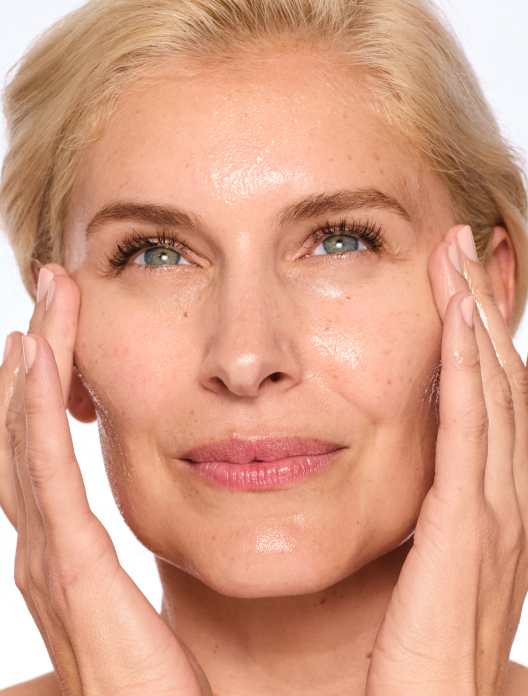
Kind-to-skin exfoliant for radiant skin, suitable for all skin types
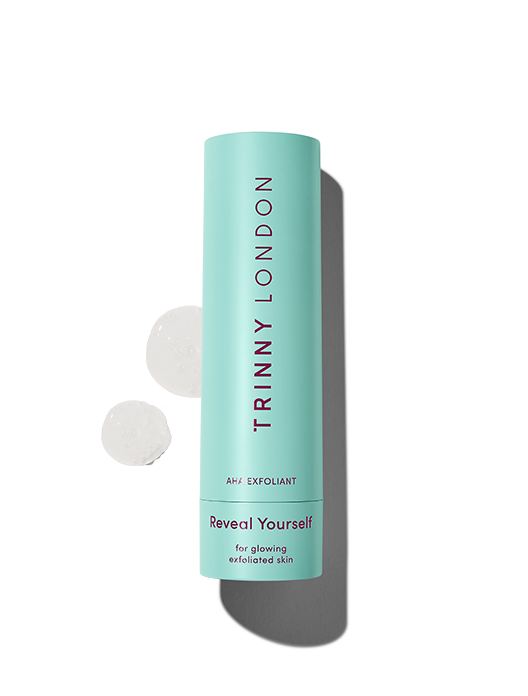
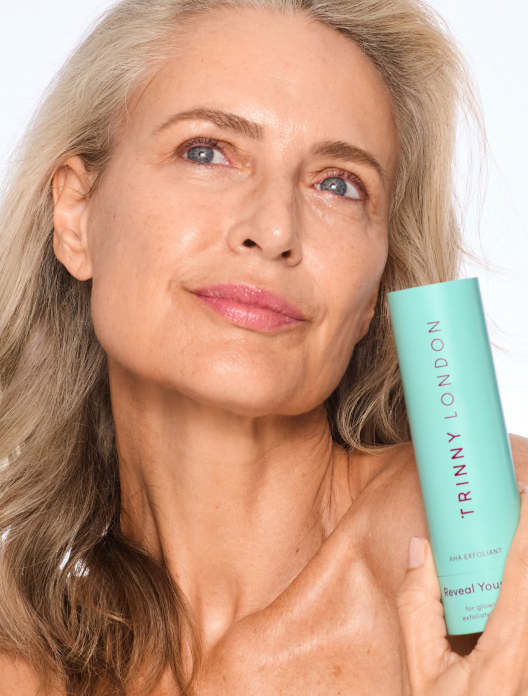
Highly active exfoliant for glowing skin, suitable for all skin types except sensitive
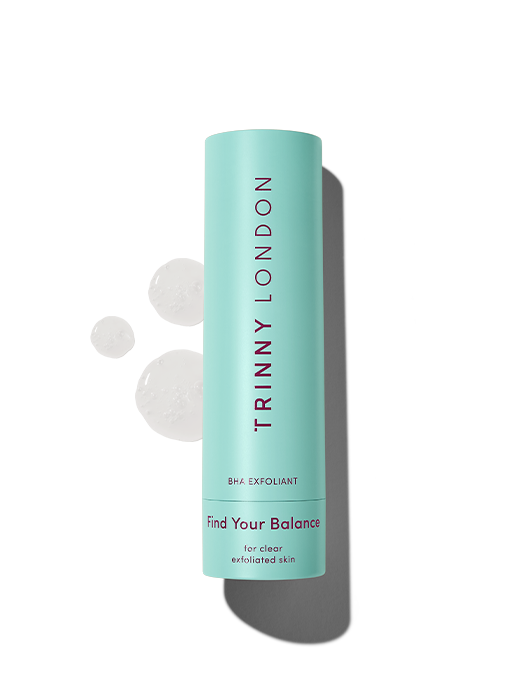
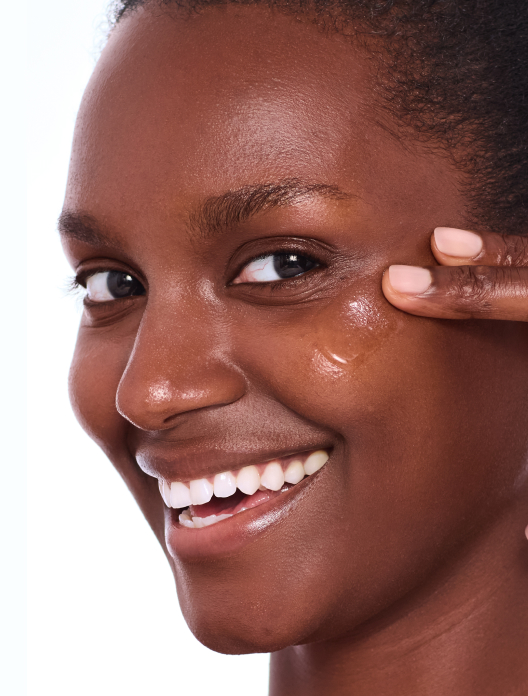
Clarifying complex to tackle blemishes
Your next non-negotiable step is moisturising. Dehydration doesn’t discriminate – whether your skin is oily or dry, hydration is key to keeping skin functioning at its best. Imagine trying to run a marathon without any water – you wouldn’t get very far.
If you have dry skin, hydration is a no-brainer – without a nourishing moisturiser, your skin can feel tight, flaky and uncomfortable. But moisturiser is just as important for oily skin; if you starve oily skin of hydration it responds by simply producing more oil, and the cycle continues. A lightweight, oil-free moisturiser will help to break this cycle so your skin can find its balance and breakouts become a rarer occurrence.
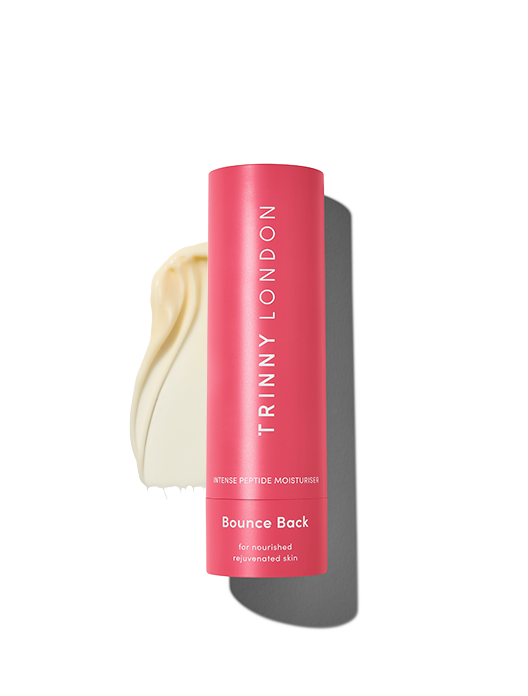
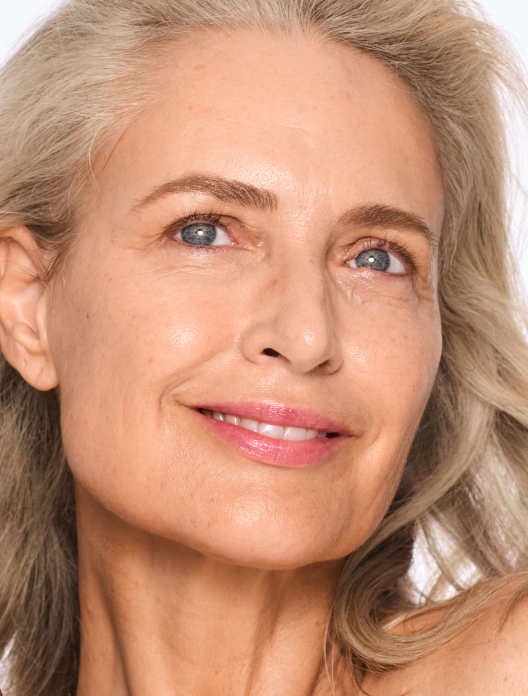
Intense peptide moisturiser for plump, bouncy skin, suitable for normal to dry skin
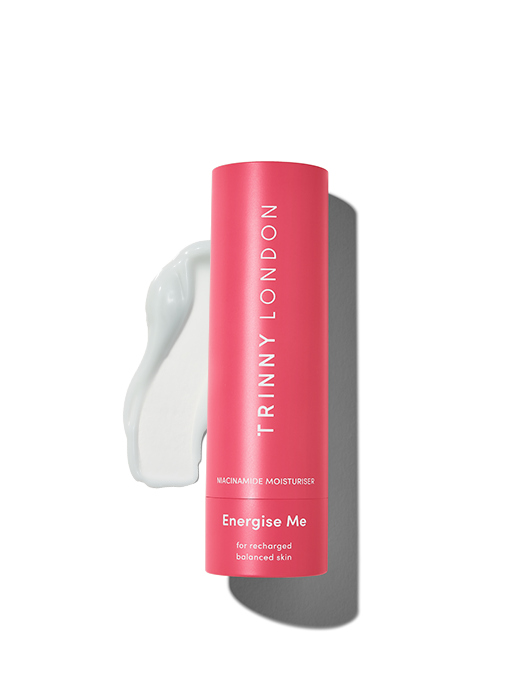
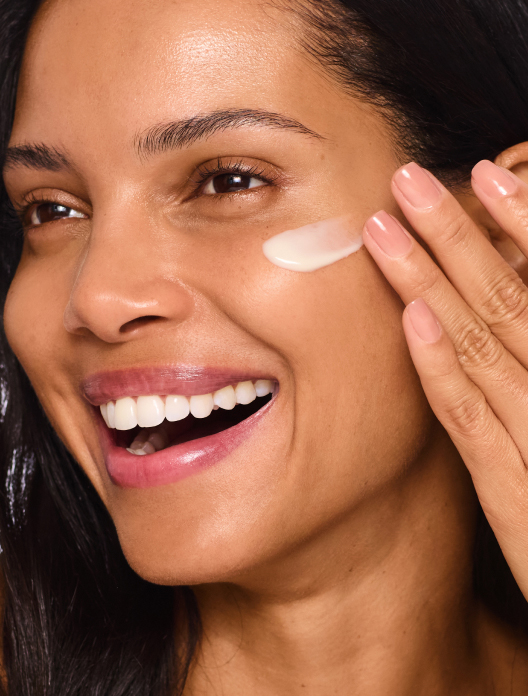
Niacinamide moisturiser for clear, energised skin, suitable for normal to oily skin
One thing all dermatologists and skin specialists agree on? Sun protection is the final and most important piece of the skincare puzzle. It’s no exaggeration to say that the rest of your skincare routine is in vain if you don’t protect your skin. UV rays are the number one cause of premature ageing and pigmentation – an SPF 50 is the best form of protection against sun damage, so make sure you apply an ample amount as the last step of your morning skincare routine. Our favourite is See The Light SPF 50+ Moisturiser for next-generation UV filters in a weightless, luxurious moisturiser formulation that you’ll want to wear every day of the year.
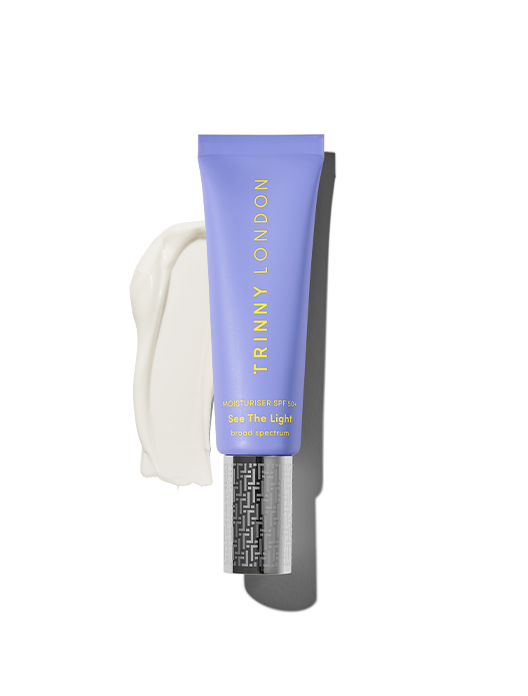
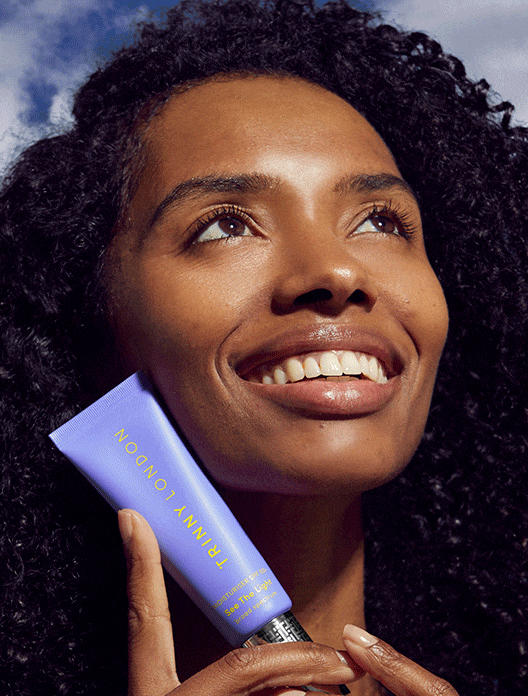
Moisturiser with SPF 50 for hydrated, protected skin
Once you’ve nailed the basics, you can think about targeted treatments to address your specific skin goals. “It’s important to set a skin goal,” explains Fiona. “Because otherwise, you could just go, ‘well, actually, I want to do it all’, and then the list is ridiculously long and it’s almost a bit unachievable.” The best way to avoid feeling overwhelmed is to start small – nail down the basics and then expand your routine from there.
This is where products that contain specific active ingredients come in. Once you’ve picked your goal, pick your active ingredients to match your goal – if it’s fine lines and wrinkles then retinal is your superhero. Want to brighten dull-looking skin? Vitamin C is your go-to. If sagging and a loss of plumpness are your main concern, then peptides are your shortcut to plumper skin.
Retinoids
Feel like your skin isn’t quite as vibrant as it used to be? Retinoids have the ability to jumpstart our skin’s cell turnover, reducing the appearance of wrinkles and fine lines in the process. Skin appears firmer and smoother and behaves more like its younger self.
Retinoids are often only mentioned in the context of fine lines and wrinkles, but they were originally used to treat acne. Not only do they speed up cell turnover so that pores don’t become congested, but they also help balance excess sebum so there’s less oil present in the skin.
There are lots of different derivatives that sit within the retinoid family, including retinal, retinol and retinyl esters. Retinal is a real superhero, delivering transformative results with a low chance of irritation (that means no more flaking like a croissant).
Niacinamide
How often do you wake up to find an unwelcome friend has set up camp on your complexion? If you feel like your skin is plotting against you, then you can rely on niacinamide to foil those nefarious plans. An ingredient that goes the extra mile, niacinamide (also known as vitamin B3) helps to reduce excess oil so blemishes become a rarer occurrence, and also improves your skin’s overall tone and texture.
Vitamin C
So much more than a glass of Tropicana, vitamin C is the first port of call for skin that’s feeling lacklustre. A potent antioxidant, vitamin C does a brilliant job of shielding skin from free radicals – molecules that come from things like sunlight, pollution and stress, and have the potential to damage our skin cells and speed up the ageing process. With consistent use, vitamin C also brightens, evens and restores radiance to dull-looking skin. The ultimate boost, think of it as a juice cleanse for your complexion.
Peptides
Peptides are pretty persuasive; “they’re like personal trainers for your skin,” explains Fiona. “If you exercise at a gym with a personal trainer, you’re much more likely to be motivated to do more compared to exercising at home alone.” Peptides set your skin to task, ordering it to make more collagen and elastin to support its structure – like crunches to strengthen your core. The more collagen and elastin there is, the firmer, bouncier and plumper your skin will feel.
Now that we’ve nailed the non-negotiables and targeted treatments, here’s how everything comes together in your AM and PM skincare routines…
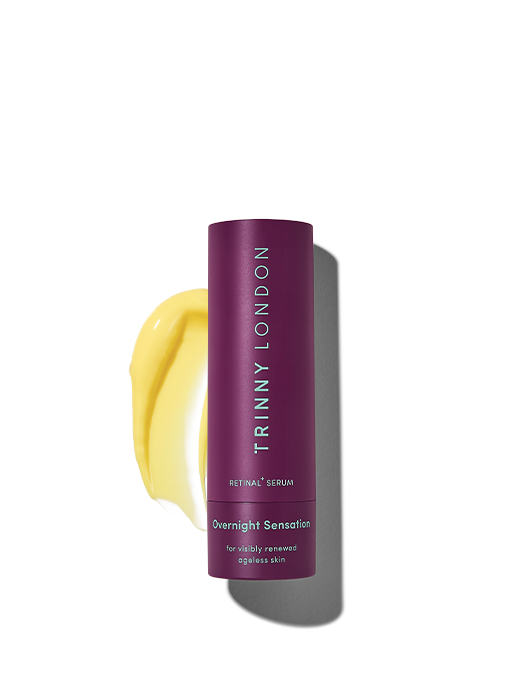
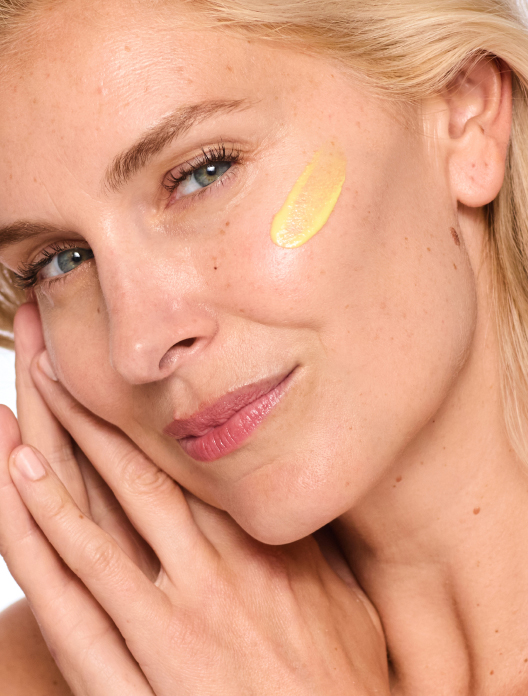
High-dose retinal serum for renewed, smooth skin, suitable for all skin types
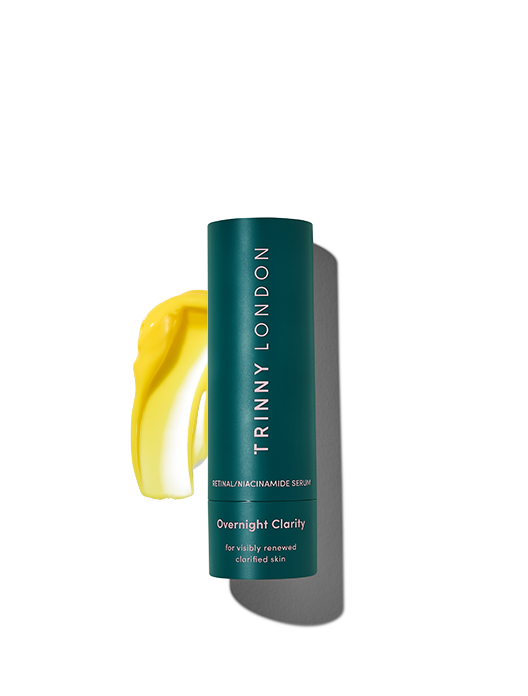
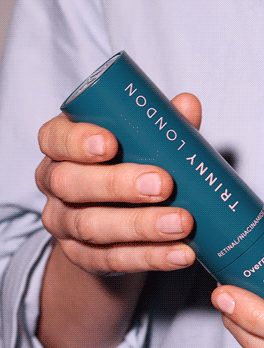
Retinal/niacinamide serum for visibly smooth, even skin, suitable for all skin types

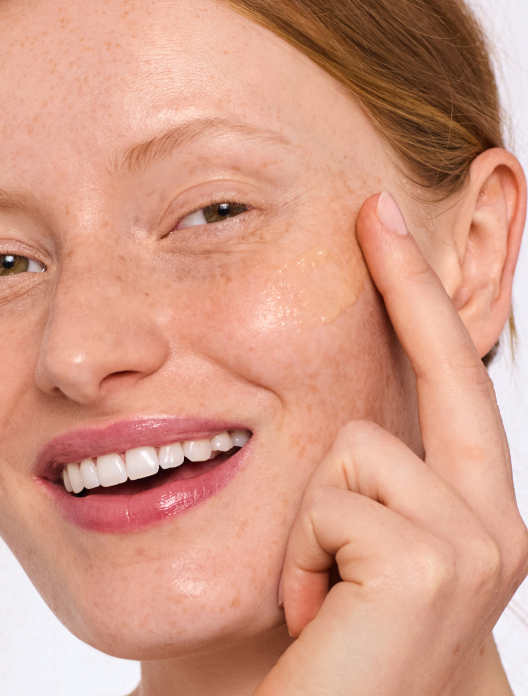
30% vitamin C serum for visibly brighter, glowing skin, suitable for highly experienced skincare users (not for sensitive skin)
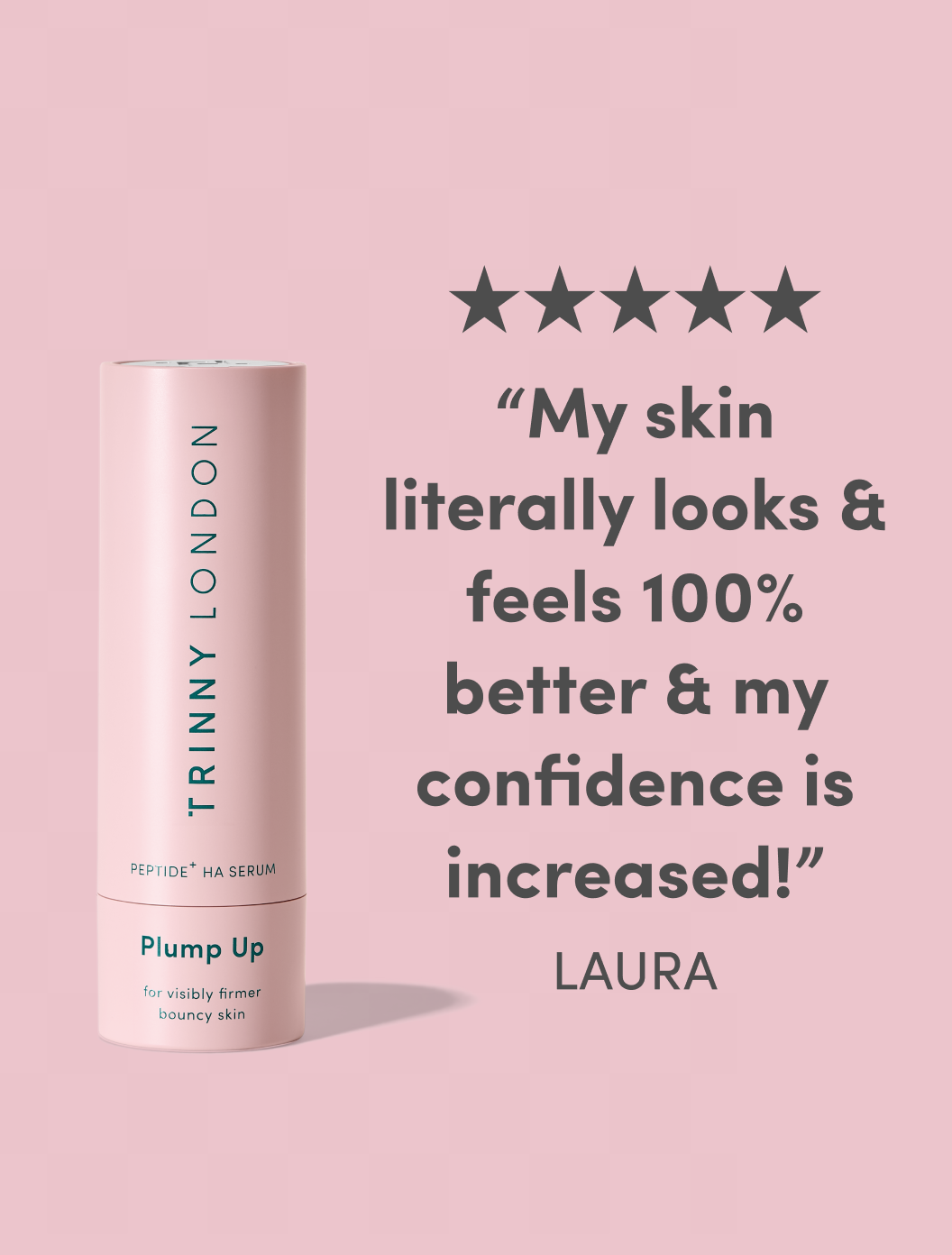
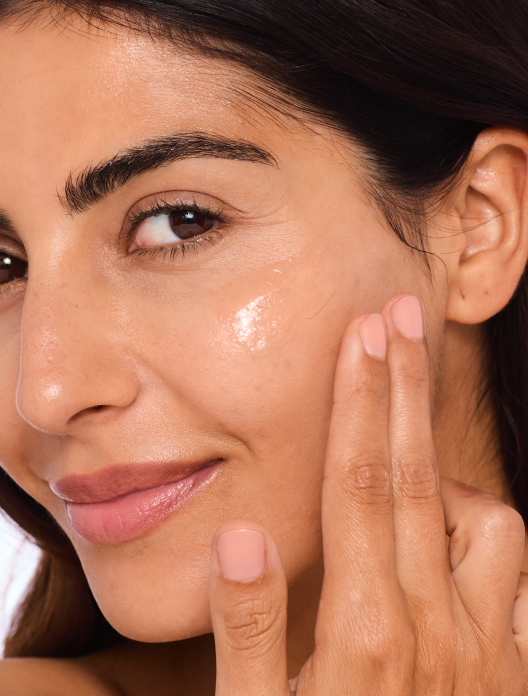
Peptide and hyaluronic acid serum for visibly firmer, bouncy skin, suitable for all skin types
Cleanse
Our skin goes through a lot at night, so a morning cleanse is essential for washing away the sweat, bacteria and impurities that collect while you’re asleep.
Serum
Set your skin up for the day with a skin-plumping peptide serum or a brightening shot of super-strength vitamin C.
Moisturiser
Keep your skin hydrated and happy with a moisturiser to reinforce the skin’s protective barrier and lock in moisture.
SPF
You know the drill – no morning routine is complete without sun protection.


Oil-based transforming cleanser for clean, nourished skin, suitable for all skin types


High-dose retinal serum for renewed, smooth skin, suitable for all skin types


Niacinamide moisturiser for clear, energised skin, suitable for normal to oily skin
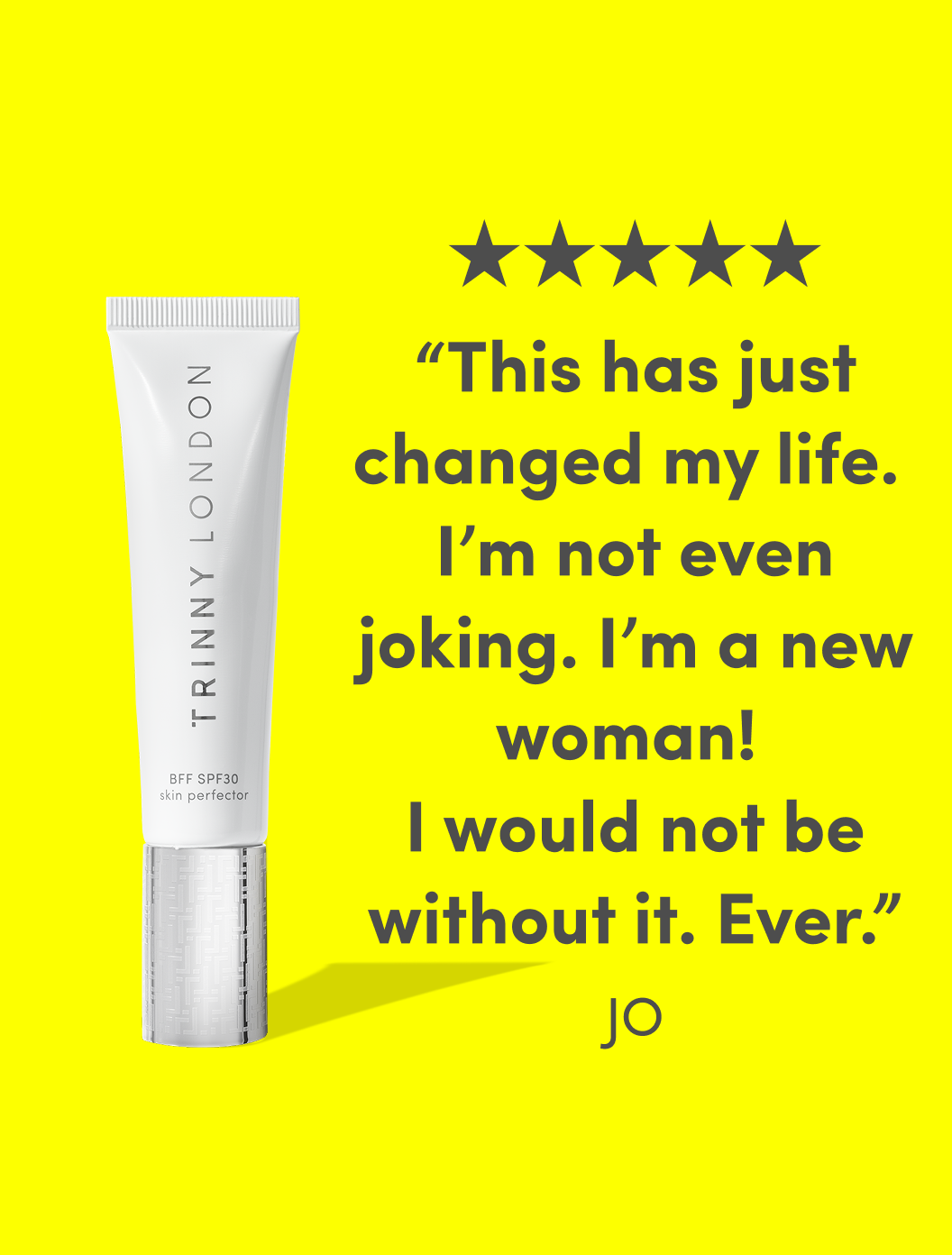


 5 shades
5 shades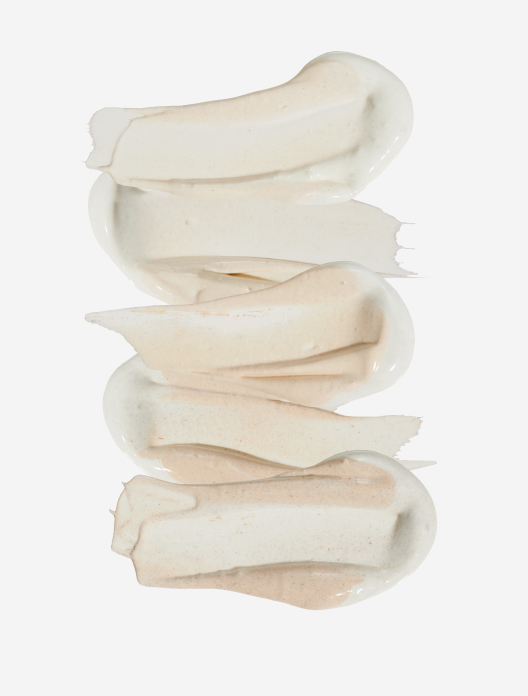
SPF 30 to protect, perfect and give skin a healthy glow
Choose shadeDouble cleanse
Your pillow isn’t the best makeup remover – cleanse twice in the evening to ensure there’s no makeup or SPF lingering on your skin before you head to bed.
Exfoliate (3–4 times a week)
The quickest way to see results in your skin, liquid exfoliants resurface, decongest and whisk away dead skin cells to leave you with glowing, balanced skin.
Serum (3–4 times a week)
The most transformative step in your routine, a targeted serum will help you achieve your skin goals.
Moisturiser
Lock in all the goodness from the rest of your night-time routine with a nourishing, skin-boosting moisturiser.
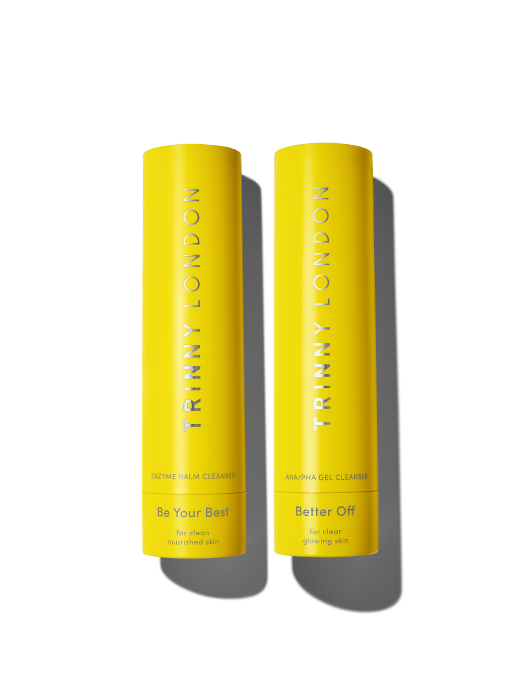
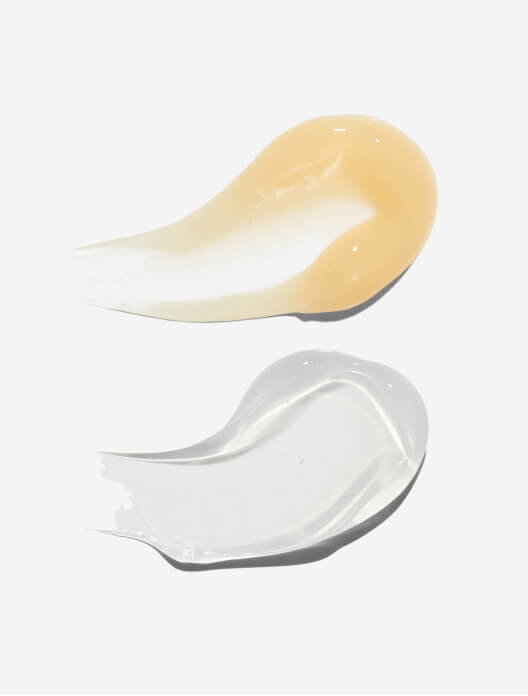
The ultimate deep clean for all skin types. Enzyme balm cleanser & AHA/PHA gel cleanser


Highly active exfoliant for glowing skin, suitable for all skin types except sensitive


Peptide and hyaluronic acid serum for visibly firmer, bouncy skin, suitable for all skin types


Niacinamide moisturiser for clear, energised skin, suitable for normal to oily skin
When you’re building a skincare routine, just remember to keep it simple – the best routine is one that you know you’ll be able to stick to. “It’s best to start off slowly. Don’t throw everything at it. But be really consistent,” explains Fiona.
If you go from rinsing your face with water to a laborious 10-step routine, it’s likely that at least some part of your routine will eventually fall to the wayside. Instead, think about your skin goals and build a targeted, easy-to-achieve routine around these. “Start with your non-negotiables,” says Fiona. “Then a few times a week build your serums into your routine.” Fiona’s final consideration? Give it time. “The challenge that lots of people have is that they’ll be consistent for a week, and they might not see results,” she explains. “You’re looking at 4–8 weeks, sometimes 12 before you see results.” Like all good things, results take time, so stay consistent to see your transformation.
Want some more help finding the best skincare routine and products for you? Our Match2Me tool will guide you through the process, delivering personalised skincare advice that’s perfectly tailored to you, including the order of skincare products, how much you should use and how often.